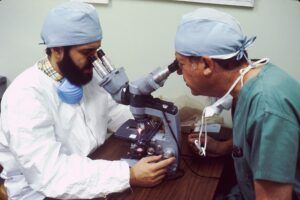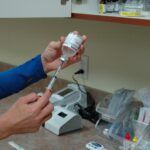Boosting international cooperation in research and innovation (R&I) requires a strengthened dialogue between actors from the EU and targeted regions. It also involves identifying obstacles to cooperation and solutions to overcome them.
The EU-funded MERID project promoted and intensified EU-Middle East R&I cooperation by building on previous international cooperation experiences in the Mediterranean and Middle East. “MERID is the very first step towards systematising support to the policy dialogue and involvement of Iran and Iraq’s research communities in Horizon 2020” says project coordinator Prof. Dr Abdelhamid El-Zoheiry.
Stepping up R&I efforts with Middle Eastern region
“MERID put science diplomacy into practice through fostering intercultural dialogue, understanding and reconciliation utilising R&I,” he adds. Online and face-to-face bilateral and multilateral activities brought together researchers, experts, policy-makers, national contact points and other relevant stakeholders from the EU, the Middle East and Mediterranean Partner Countries (MPCs).
Bilateral policy dialogue meetings held with current and potential beneficiaries of EU-Middle East science, technology and innovation (STI) cooperation helped to identify common problems and possible solutions to obstacles and opportunities encountered at national/framework, institutional and personal levels. Brokerage events for innovation provided researchers and R&I stakeholders the opportunity to establish contacts, created partnerships and the necessary critical mass to implement innovative ideas and strengthen the EU-Middle East research network. Info days and capacity building events in partner countries generated an increased interest in cooperating on Horizon 2020 projects and collaborating with European counterparts.
The project team provided assistance and one-on-one coaching sessions to Middle Eastern researchers and experts for ongoing Horizon 2020 applications. Webinars presented opportunities for R&I cooperation under Horizon 2020. The info and coaching sessions, together with other capacity building activities, resulted in three submitted proposals.
Fostering enhanced EU-Middle East R&I cooperation
Project partners produced short-, mid- and long-term recommendations for better EU-Middle East STI cooperation. The relevant policy paper presents obstacles to be overcome, opportunities for collaboration within Horizon 2020, synergies with bilateral cooperation programmes and possibilities for funding. It addresses Egypt, Iran, Iraq, Jordan, Lebanon and Palestine, but can also be used by EU experts to plan future cooperation mechanisms with other partner countries in the region.
The project is expected to deliver a long-lasting impact and structuring effects on cooperation. “MERID laid the foundation for future joint research projects and initiatives between the EU and the Middle East, and established optimal framework conditions for international cooperation while increasing coordination and synergies between policies and programmes,” concludes Prof. Dr El-Zoheiry.
More Information
Access to the complete news







Leave a Reply